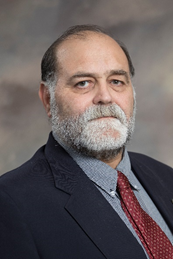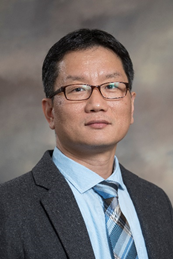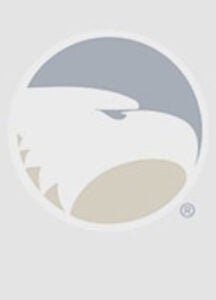Surveyors in Action
More About Surveying Geomatics
Surveying-Geomatics Career Opportunities
Surveyors are not likely to run out of things to do. Surveying has existed for thousands of years as a means to facilitate the location, construction, and cataloging of data. From the time of the ancient Egyptians to the modern day, surveyors have been the first on the job and the last to leave to make sure that things are located and constructed correctly.
There are a number of services that only a licensed Professional Surveyor can provide.
The location of property boundaries, and land-related services such as:
- Location
- Topography
- Spatial position
- Land use planning
Anything related to land location and use generally requires the services of a Professional Surveyor. Surveyors also collaborate with many other professionals, including engineers, architects, attorneys, realtors, developers, and contractors, and they advise land owners.
Land surveyors may have slightly different processes, depending on their specific type of surveying.
Construction or Engineering: This type of surveyor studies changes in property lines and identifies the precise locations of buildings and roads. They may also survey road topography and grade or determine the appropriate depth for building foundations.
Geodetic: A surveyor who uses satellite and aerial imaging to measure very large portions of the earth is called a geodetic surveyor.
Boundary or Land: This type of surveyor fulfills the important duty of determining exactly where property lines are located.
Contact Links for Career Opportunities
CENG 2231: Surveying
Lecture Contact Hours: 0,2 Lab Contact Hours: 0,2
Principles of the level, theodolite, electronic distance measurement(EDM), total station and global positioning systems, taping, note keeping, coordinate geometry, control surveys, triangulation, trilateration, plane coordinate systems, azimuth and topographic mapping. Laboratory Includes use of level, theodolite, EDM, total station, GPS, traverse closure, level net closure, topographic mapping, measuring distances and heights using coordinate geometry calculations.
Prerequisite(s): A minimum grade of “C” in MATH 1112 or MATH 1113 or MATH 1441 and CENG 1133 or ENGR 1133 or TCM 1232.
Cross Listing(s):TCM 2233.
Repeat Limit: Not Repeatable
CENG 5137/G: Engineering Hydrology and Hydraulics
CENG 5137 – Engineering Hydrology and Hydraulics (3 Credit Hours)
Lecture Contact Hours: 0,2 Lab Contact Hours: 0,2
This course integrates concepts developed in Fluid Mechanics with fundamental hydrologic and hydraulic processes used in the analysis and design of urban drainage, flood control, and measurement structures. Hydrology topics include the hydrologic cycle, precipitation, hydrograph analysis, evapotranspiration, runoff, and flood routing. Hydraulics Topics Include open channel flow, hydraulic design, pump classification, pump and system curves, and water/wastewater pumping stations.
Prerequisite(s): A minimum grade of “C” in CENG 2131 or permission of instructor.
Cross Listing(s):CENG 5137G.
Repeat Limit: Not Repeatable
CENG 5431/G: Advanced Surveying
Lecture Contact Hours: 0,2 Lab Contact Hours: 0,2
Principles of field astronomy, GPS surveys, control surveys, State Plane Coordinate Systems, photogrammetry, volume determination, route surveying (horizontal and vertical curvature) and an introduction to Geographical Information Systems. Laboratory includes: GPS for control, coordinate system transformations, survey boundary development, topography survey, and roadway alignment.
Prerequisite(s): A minimum grade of “C” in CENG 2231 or TCM 2233 or permission of instructor.
Cross Listing(s):CENG 5431G.
Repeat Limit: Not Repeatable
CENG 5432/G: Introduction to GIS in Surveying-Geomatics and Transportation
Lecture Contact Hours: 3
An introduction to the knowledge and skill requirements of Geographic Information Systems (GIS) as applied to surveying-geomatics and transportation. Students will learn and apply GIS and cartographic concepts to develop problem solutions in surveying mapping & thematic mapping and to manipulate geo-referenced spatial information as required in typical industry applications.
Prerequisite(s): Minimum grade of “C” in CENG 2231 or TCM 2233 or permission of instructor.
Cross Listing(s):CENG 5432G
Repeat Limit: Not Repeatable
CENG 5433/G: Drainage and Erosion Control
Lecture Contact Hours: 3
Principles and practices of drainage design including drainage structures, stormwater quality and erosion & sediment control measures, with particular emphasis on governmental publications and regulations.
Prerequisite(s): A minimum grade of “C” in CENG 5137 or CENG 5137G or permission of instructor.
Cross Listing(s):CENG 5433G
Repeat Limit: Not Repeatable
CENG 5434/G: Surveying History and Law
Lecture Contact Hours: 3
Study of the legal aspects of surveying, including boundary law and the surveyor’s rights and responsibilities, with particular emphasis on surveying practice in Georgia.
Prerequisite(s): A minimum grade of “C” in CENG 2231 or TCM 2233 or permission of instructor.
Cross Listing(s):CENG 5434G
Repeat Limit: Not Repeatable
CENG 5435/G: Introduction to Terrestrial LiDAR
Lecture Contact Hours: 0,2 Lab Contact Hours: 0,2
This course presents a thorough introduction to terrestrial light detection and ranging (LiDAR) or laser scanning and its multiple applications. It Includes the use of selected state-of-the-art, ground-based, instruments and their corresponding data collection and processing software packages to generate 3D point-cloud models.
Prerequisite(s): Approval of the Instructor.
Cross Listing(s):CENG 5435G.
Repeat Limit: Not Repeatable
CENG 5436/G: Introduction to Close-Range Photogrammetry
Lecture Contact Hours: 0,2 Lab Contact Hours: 0,2
This course presents a thorough introduction to close-range photogrammetry and its multiple applications in Civil and Construction Engineering. It includes the use of selected, state-of-the-art, unmanned aerial vehicles and associated data collection and processing software packages to generate 3D spatial models.Prerequisite(s): Approval of the Instructor.
Cross Listing(s): CENG 5436G.
Repeat Limit: Not Repeatable
CENG 5438/G Surveying-Geomatics Professional Practice
Lecture Contact Hours: 3
This course prepares the student for professional practice as a Land Surveyor and includes subdivision design, site layout including associated drainage and sewer design, application of zoning and land use regulations, professional ethics, associated business practices, platting and CAD/computer methods.
Prerequisite(s): A minimum grade of “C” in CENG 5431 and CENG 5434 or permission of instructor.
Cross Listing(s):CENG 5438G
Repeat Limit: Not Repeatable
Tentative Surveying-Geomatics Course Schedule
| Course | Fall | Spring | Summer |
|---|---|---|---|
| CENG 2231 Surveying (or TCM 2233 Construction Surveying) | X | X | X |
| CENG 5137/G Engineering Hydrology & Hydraulics | X | ||
| CENG 5431/G Advanced Surveying | X | ||
| CENG 5432/G Intro to GIS in Surveying-Geomatics & Transportation | X | ||
| CENG 5433/G Drainage & Erosion Control | X | ||
| CENG 5434/G Surveying History and Law | X | ||
| CENG 5435/G Intro to Terrestrial LiDAR | X | ||
| CENG 5436/G Intro to Close-Range Photogrammetry | X | ||
| CENG 5438/G Surveying-Geomatics Professional Practice | X | ||
| GEOG 3440 Intro to GIS and Cartography | X |
Where can I find employment? Graduates can find employment just about anywhere they want to live. Logically, there will be more opportunities in the Atlanta area than in southwest Georgia. We hope that our graduates get jobs all over the United States, from Atlanta to California.
Can I get licensed as a surveyor? The program at Georgia Southern University is set up to support graduated students in obtaining surveyor’s licenses in Georgia. Completing the necessary courses, obtaining the required experience (four to eight years depending on your education) and successfully passing two exams (Fundamentals of Surveying (FS) and Professional licensed Surveyor (PS) exams) leads to licensure as a Professional Land Surveyor (PLS). You can see the surveying exam applications and information at the National Council of Examiners for Engineering and Surveying (NCEES) website. https://ncees.org/surveying/
What types of jobs can I get after completing my surveying pathway at Georgia Southern University? Numerous jobs are available in the surveying-geomatics and geospatial fields depending on your education and background. The most common jobs are survey technician, survey party chief, survey project manager, computer aided design (CAD) technician, CAD manager, geographic information system (GIS) technician, GIS manager, photogrammetrist, geodesist, office manager and corporate officer. Jobs are available in the private sector and in the government sector at the local, state and federal agencies. If you are an entrepreneur at heart, setting up your surveying business is always an option after obtaining your surveying license.
What is the starting salary? Starting salaries depend on the position and the location of the employer. The Atlanta area probably has higher starting salaries. The starting salaries for licensed surveyors in Georgia can range from range from $45,000 to $90,000.
Where do graduates work? Graduates work across the United States. In Georgia, they work in small towns and large cities. Some work in small, family surveying companies. Others work in large multi-state surveying and mapping companies and civil engineering companies. Graduates can generally work where they desire, in any size firm they feel comfortable.
Is it difficult to get jobs? Like any profession, surveying employment depends on the location and the market or demand. There will be a demand for surveyors in Georgia in the future as the economy grows and the number of licensed surveyors declines due to retirement.
How difficult is it to find summer jobs? With a little effort, traditional students can obtain summer positions in the surveying or mapping fields. Career fairs at Georgia Southern University afford the student’s opportunities to seek out internships and summer employment. We would like for our students to establish a relationship with a Surveying Company as soon as possible after their first year of college.
How do I fit in at Georgia Southern University? Georgia Southern University has nearly 26,000 students and, for the traditional on-campus student, has comfortable dorms, a good research library, an event auditorium, numerous recreation opportunities, nationally recognized sports teams (e.g., NCAA football), tutoring for core classes, and a friendly atmosphere. The average class size in a surveying class size is 24 students or less. There are three faculty members with doctorates and one part-time faculty member that teach the Surveying-Geomatics courses.
Are the courses difficult? All engineering and Surveying-Geomatics courses can be difficult. Students who put sufficient effort into their studies generally pass. Students with learning disabilities are provided with help and faculty receive instruction on how to help students learn.
Can Surveying-Geomatics students get a Professional Engineering (PE) license along with a Professional Land Surveyor (PLS) license? Yes, civil engineering & construction engineering students can obtain a PE license. Additional education, experience and exams are required.
Can I take the required Surveying-Geomatics courses online? Yes, the Surveying-Geomatics courses are set up in an online platform. Four of the Surveying-Geomatics courses require labs that can be completed on campus or with the help of a Licensed Professional Surveyor (PLS option).
How much do the Surveying-Geomatics Courses Cost? The cost for a 3-hour undergraduate course (In-State) for Spring of 2021 is approximately $791.39 (additional fees may be required). To see a listing of Undergraduate Tuition and Fees, go to: https://finserv.georgiasouthern.edu/bursar/office-of-student-accounts/tuition-and-fees/
How often are the Surveying-Geomatics Courses offered? All of the Surveying-Geomatics Courses are offered at least once per year. Go to the following link to see the tentative course offering schedule: Tentative S-G Course Schedule
If you have other questions about the Surveying-Geomatics paths at Georgia Southern University, contact Dr. Roger Purcell.
Non-Traditional Surveying-Geomatics Students and Undergraduate Students with Embedded Surveying-Geomatics Certificate: BSCE, BSConE., and BSCon
Kathy Shepherd
Statesboro Campus: IT 1208
(912) 478-8039
kshepherd@georgiasouthern.edu
Graduate Civil Engineering (MSCE or Accelerated Bachelor’s to Master’s Program: Civil Engineering)
Erica Colbert
Statesboro Campus: IT 3004
(912) 478-3007
ercolbert@georgiasouthern.edu
Undergraduate Degree Programs
Graduate Degree Programs
(An Accelerated Bachelor’s to Master’s Degree (ABM) 4+1 Degree option is available for the Civil Engineering MSCE. )
Faculty Listing

Roger Purcell

Gustavo Maldonado

Marcel Maghiar

Soonkie Nam


